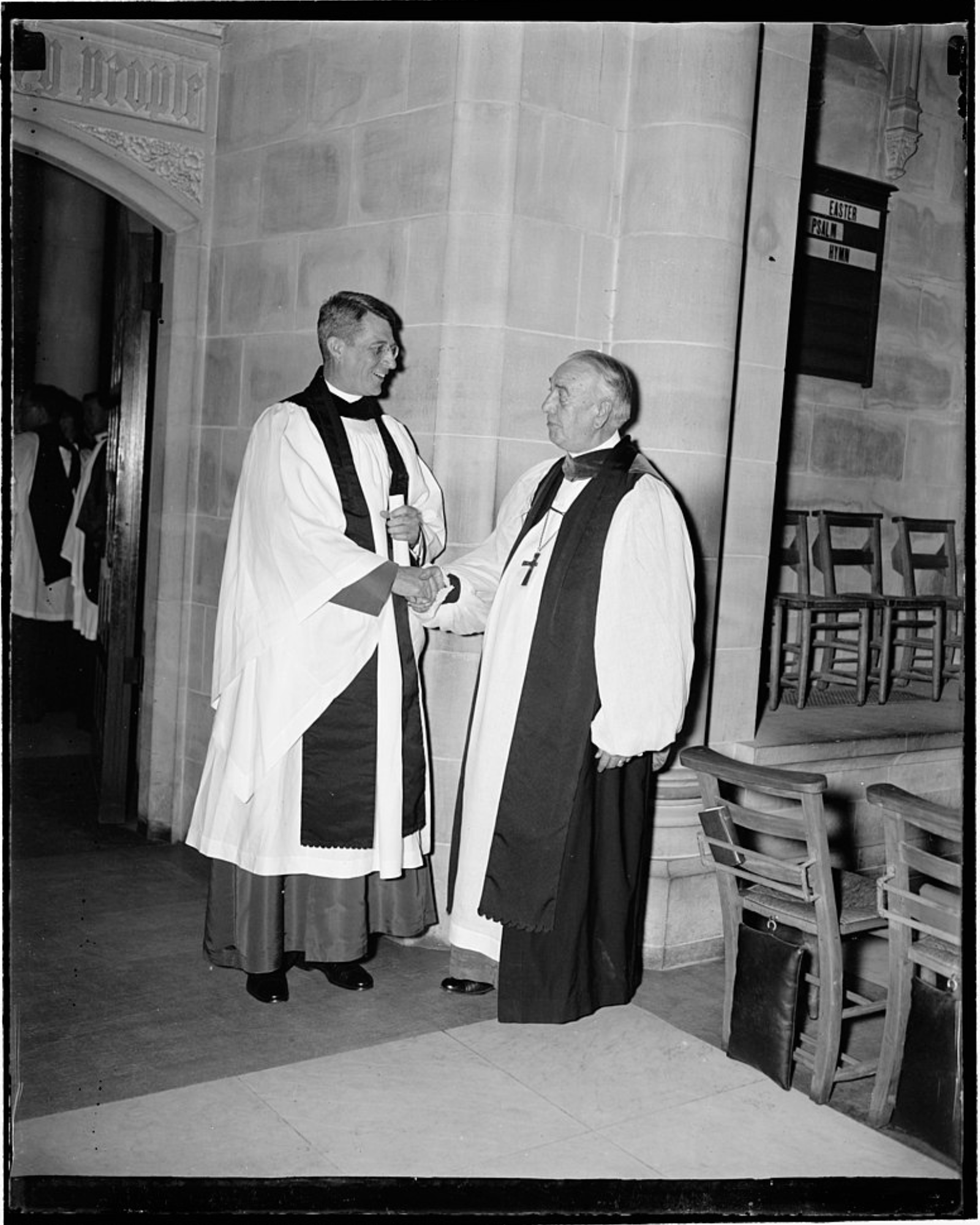Early Life and Education
Noble Cilley Powell was born October 27, 1891, in Lowndesboro Alabama to a family of long-standing Southern values and tradition. His mother and father, Benjamin Shelley Powell and Mary Irving Whitman nurtured him in his early years with faith and service that would come to define him. Powell began his collegiate education at Alabama Polytechnic Institute (now Auburn University) from 1911 to 1915. He then attended the University of Virginia from 1915 to 1917, where he began to focus on his future — both intellectually and spiritually. Answering to what would, in fact, become his true calling, Powell attended Virginia Theological Seminar and graduated with a Bachelor of Divinity in 1920. For his commitment and distinguished scholarship, he was awarded several honorary Doctor of Divinity degrees as well: from Virginia Theological Seminary in 1930—the first time that degree had been awarded by the seminary—then Sewanee: The University of the South (1942), and Washington College (1957).
Ordained Ministry
Powell was ordained as a deacon in 1920 and, shortly thereafter, as a priest on January 9, 1921, by Bishop William Cabell Brown of Virginia. His first significant appointment was as rector of St. Paul’s Memorial Church in Charlottesville, Virginia, where he served from 1920 to 1931. During this time, Powell also ministered to students at the University of Virginia and was often referred to as “Parson Powell” for his dedication to guiding students both in their faith as well as academics. His work with students highlighted his ability to connect with and mentor the next generation, laying a foundation for his later leadership roles within the Episcopal Church.
In 1931, Powell moved to Baltimore, where he became the rector of Emmanuel Church and in 1937 he was appointed Dean of Washington National Cathedral and warden of the College of Preachers. In these roles, Powell was not only a spiritual leader but also an educator and mentor to clergy, shaping the preaching and teaching ministries of the Episcopal Church.
Episcopacy
Powell’s distinguished service and leadership were again acknowledged in 1941 when he was elected Coadjutor Bishop of Maryland. His consecration on October 17, 1941, by Presiding Bishop Henry St. George Tucker marked the beginning of a new chapter in his ministry. Powell then succeeded Bishop Edward T. Helfenstein as the diocesan bishop in 1943, becoming the ninth Bishop of Maryland.
As Bishop of Maryland, Powell’s leadership was characterized by his commitment to the spiritual and organizational health of the diocese. He guided the Episcopal Church in Maryland through two decades marked by major societal shifts, including post World War II and the beginnings of the Civil Rights Movement. Under his guidance, the diocese expanded its outreach and deepened its commitment to social justice.
Powell’s tenure as bishop lasted until 1963. His influence extended beyond Maryland as he played a significant role in the national Episcopal Church, contributing to its growth and adaptation in the mid-20th century.
Personal Life and Legacy
In 1924, Powell married Mary Wilkins Rustin and they raised two sons, Philip and Thomas. Powell balanced his ecclesiastical duties with his role as a husband and father.
Powell passed away on November 28, 1968, in Baltimore, Maryland, leaving behind a legacy of faithful service and leadership. He was laid to rest at St. Thomas Church in Owings Mills, Maryland, where his life and work continue to be remembered and honored.
Powell’s life exemplified the power of faith, leadership, and service. His contributions to the Episcopal Church, particularly during his tenure as Bishop of Maryland, left an indelible mark on the institution and its followers. His ability to lead with compassion, wisdom, and a deep sense of duty has ensured that his memory lives on in the hearts of those he served and in the history of the church he helped to shape.
Back to all News items.


